Qatar doesn’t just limit cryptocurrency - it bans most of it outright. If you're a resident in Qatar and you're wondering whether you can buy Bitcoin, trade Ethereum, or use a crypto wallet, the answer is simple: no. But it’s not that simple. While traditional crypto is off-limits, Qatar has quietly opened a back door for something else entirely: tokenized real estate, bonds, and commodities. This isn’t a loophole - it’s policy. And if you don’t understand the difference, you could accidentally break the law.
What’s Completely Banned in Qatar
Bitcoin, Ethereum, Solana, Dogecoin - any coin that trades like currency - is illegal in Qatar. This isn’t a gray area. Since 2018, the Central Bank of Qatar has prohibited banks from handling cryptocurrency transactions. By 2020, that ban extended to all financial services within the Qatar Financial Centre (QFC). In September 2024, the rules got even clearer.
The QFC Regulatory Authority (QFCRA) officially labeled Bitcoin and other cryptocurrencies as "Excluded Tokens." That means they’re not just unregulated - they’re excluded from the entire legal framework. No trading platforms, no exchanges, no wallets licensed in Qatar. Even stablecoins like USDT or USDC are banned. They’re treated like currency substitutes, and Qatar doesn’t want any part of that.
For residents, this means you can’t legally buy crypto through local apps, use Qatari banks to fund a Binance account, or withdraw crypto to a local wallet. If you’re caught running a crypto business, you’re violating financial regulations. Personal use is less clearly defined, but the government doesn’t need to spell it out - if you’re using crypto, you’re operating outside the system, and that’s risky.
What’s Actually Legal - And How It Works
Here’s where things get interesting. Qatar isn’t anti-blockchain. It’s anti-speculation. The same 2024 rules that ban Bitcoin created a legal path for something called "Permitted Tokens." These aren’t coins. They’re digital representations of real assets - like a share of a Doha apartment, a slice of a gold bar, or a bond issued by a Qatari company.
The process is strict. To turn a physical asset into a token, you need three steps:
- Validation: A licensed validator confirms you own the asset - say, a commercial building in West Bay.
- Request: You formally ask a licensed token generator to create the digital token.
- Generation: The token is issued on government-approved infrastructure, tied to your legal rights.
Once issued, that token is legally recognized as proof of ownership. You can sell it, transfer it, or use it as collateral - all within the law. And unlike Bitcoin, its value doesn’t swing based on memes or Elon Musk tweets. It’s tied to real estate, commodities, or financial instruments with clear market prices.
These tokens are only available through licensed providers. There are no public marketplaces like Coinbase or Kraken. You can’t just download an app. You have to go through regulated firms operating under QFCRA supervision. Think of it like buying stocks - but on a blockchain.
Why Qatar Took This Path
Qatar’s approach isn’t random. It’s a reaction to global crypto chaos. In 2021, when Bitcoin hit $60,000, people in Gulf countries were rushing to buy. When it crashed, many lost money. The Central Bank saw the risks: money laundering, fraud, volatility, and no consumer protection.
But Qatar also wants to be a financial hub. It can’t ignore blockchain technology. So instead of banning all digital assets, it picked the ones with real economic value. Tokenized real estate is huge in Qatar - the country has billions in property assets. Tokenizing them could attract foreign investors without opening the door to wild speculation.
Compare Qatar to the UAE or Saudi Arabia. The UAE allows crypto exchanges. Saudi Arabia lets you trade Bitcoin with licensed brokers. Qatar? It says no to crypto - yes to asset-backed tokens. It’s the most cautious approach in the Gulf. Experts call it "controlled innovation." It’s not about rejecting tech - it’s about controlling how it’s used.
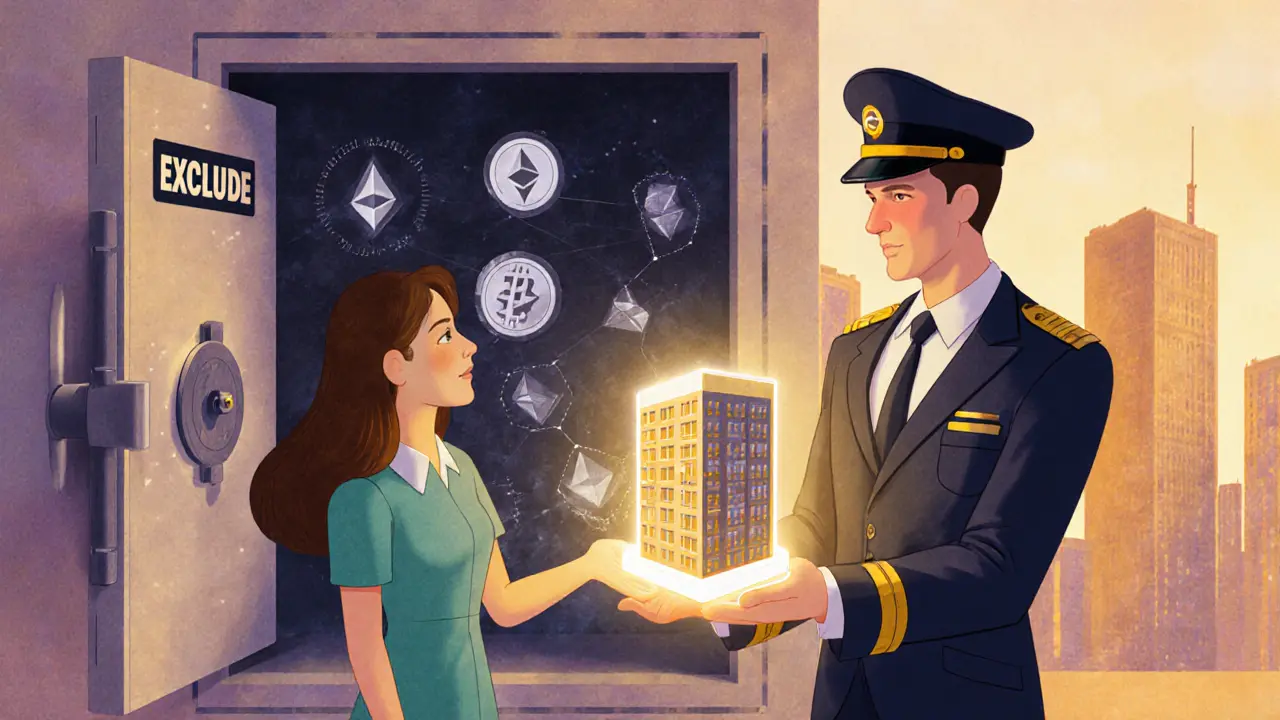
What Happens If You Try to Use Crypto Anyway
Technically, there’s no law that says, "You will go to jail for owning Bitcoin." But that doesn’t mean you’re safe.
Law No. 20 of 2019 on Combating Money Laundering and Terrorism Financing defines "funds" to include digital assets. If you’re sending crypto to or from Qatar, even through a foreign exchange, you could trigger AML alerts. Banks monitor international transfers. If they see a pattern - say, regular payments to Binance or Coinbase - they’ll report it. And in Qatar, reporting means investigation.
There have been no public cases of individuals being prosecuted for personal crypto use. But that doesn’t mean it won’t happen. The government doesn’t need to make an example - the threat alone is enough. Most residents avoid it. Those who don’t often use VPNs and offshore wallets, but that’s not legal protection - it’s a gamble.
For businesses, the risk is higher. Any company offering crypto services - even a simple wallet app - faces fines, license revocation, or criminal charges. The QFCRA doesn’t need to prove intent. If you’re dealing in excluded tokens, you’re already in violation.
How to Invest Legally in Qatar’s Digital Assets
If you want to participate in Qatar’s digital economy, you have one legal path: tokenized assets. Here’s how to do it right.
- Work only with QFCRA-licensed token service providers. Ask for their license number - they’re required to show it.
- Only invest in tokens backed by real assets: real estate, sukuk, commodities, or corporate shares.
- Understand the tokenization process. You’re not buying a coin - you’re buying legal rights.
- Don’t assume liquidity. These aren’t like stocks on a public exchange. Selling might take weeks, not minutes.
- Keep records. The QFCRA may require proof of ownership and transaction history.
Some firms in Doha are already offering tokenized real estate. A $50,000 apartment in Al Wakrah might be split into 100 tokens. You buy 10. You own 10% of the property. You get rental income. You can sell your tokens later. It’s not Bitcoin - but it’s blockchain, and it’s legal.
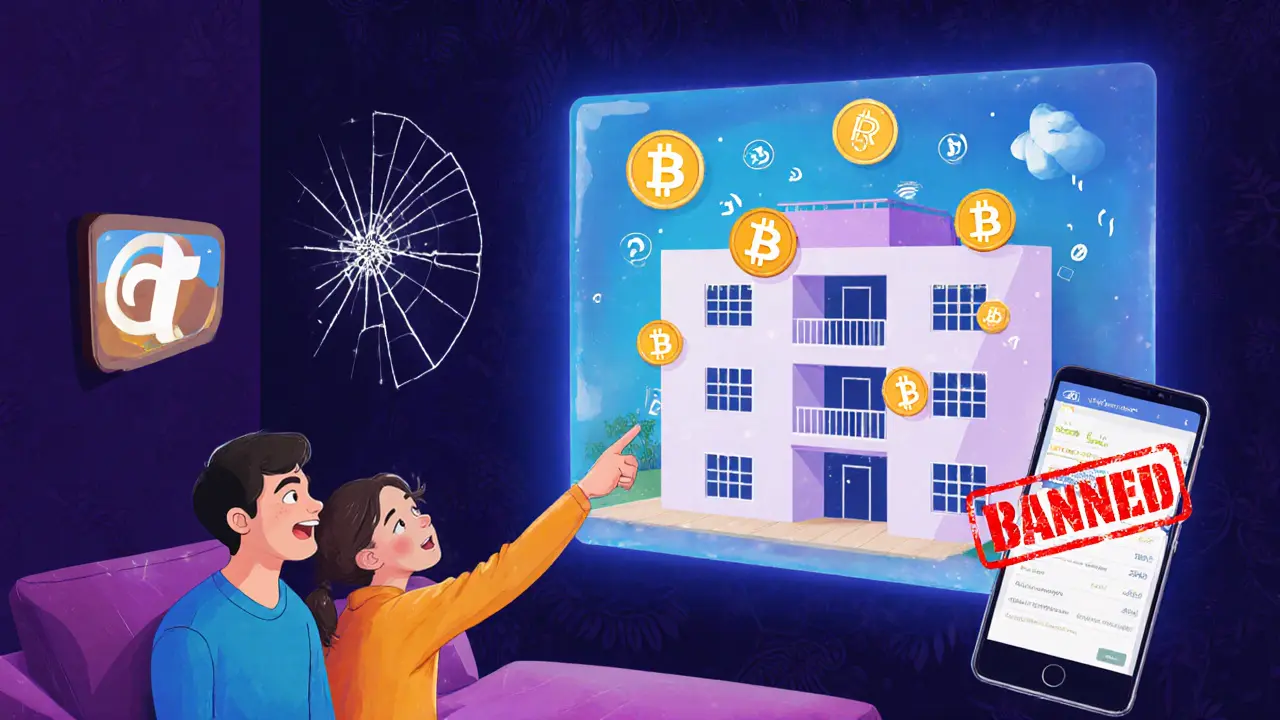
What’s Next for Qatar’s Crypto Rules
Don’t expect a sudden shift. The 2024 framework was designed to last. The QFCRA has made it clear: cryptocurrencies stay banned. Stablecoins? Still excluded. CBDCs? Not allowed for private use. Qatar is building its own digital financial system - one where every asset has a physical anchor.
Future changes will likely expand the types of assets that can be tokenized - maybe carbon credits, art, or intellectual property. But don’t wait for Bitcoin to be legalized. That’s not coming.
The bigger trend? Qatar is positioning itself as a hub for institutional-grade digital assets. Hedge funds and family offices are already looking at tokenized real estate in the Gulf. Qatar wants a slice of that. But it won’t open the door to retail crypto traders. The message is clear: innovation yes - speculation no.
Frequently Asked Questions
Can I use Binance or Coinbase in Qatar?
No. Binance, Coinbase, and other crypto exchanges are not licensed in Qatar. Using them violates the QFCRA’s Digital Assets Regulations 2024. While you might access them via a VPN, doing so puts you at legal risk. Qatari banks monitor international transfers, and crypto-related payments may trigger AML investigations.
Is it illegal to hold Bitcoin in Qatar?
The law doesn’t explicitly say "owning Bitcoin is a crime," but it bans all services related to it - trading, exchanging, custody. Holding Bitcoin is a legal gray area, but if you’re caught using it, transferring it, or spending it in Qatar, you could face penalties under anti-money laundering laws. The safest approach is to avoid holding it entirely.
Can I invest in tokenized real estate in Qatar?
Yes - and it’s the only legal way to invest in digital assets. Licensed providers in the Qatar Financial Centre offer tokenized shares in real estate, commodities, and bonds. You must go through their official process: asset validation, formal request, and token generation. These tokens are legally recognized and tied to real value, not speculation.
Are stablecoins like USDT legal in Qatar?
No. Stablecoins are classified as "Excluded Tokens" under Qatar’s 2024 regulations. Even though they’re pegged to the US dollar, they’re treated as currency substitutes - which Qatar bans outright. Using USDT for payments, trading, or storage is not permitted.
Can I start a crypto business in Qatar?
No. The QFCRA prohibits all Virtual Asset Service Provider (VASP) activities involving cryptocurrencies, stablecoins, or CBDCs. This includes exchanges, wallets, mining, and brokerage. You can only operate a business if you’re providing tokenized asset services under a licensed framework - and even then, you must follow strict validation and compliance rules.
Final Thoughts
Qatar’s crypto rules aren’t about being backward. They’re about being careful. The country has chosen to embrace blockchain - but only when it’s tied to something real. If you want to invest, don’t chase Bitcoin. Look at tokenized property. If you’re a business, don’t build a crypto app. Build a platform for asset tokenization. The future of finance in Qatar isn’t decentralized - it’s controlled, transparent, and anchored to tangible value.
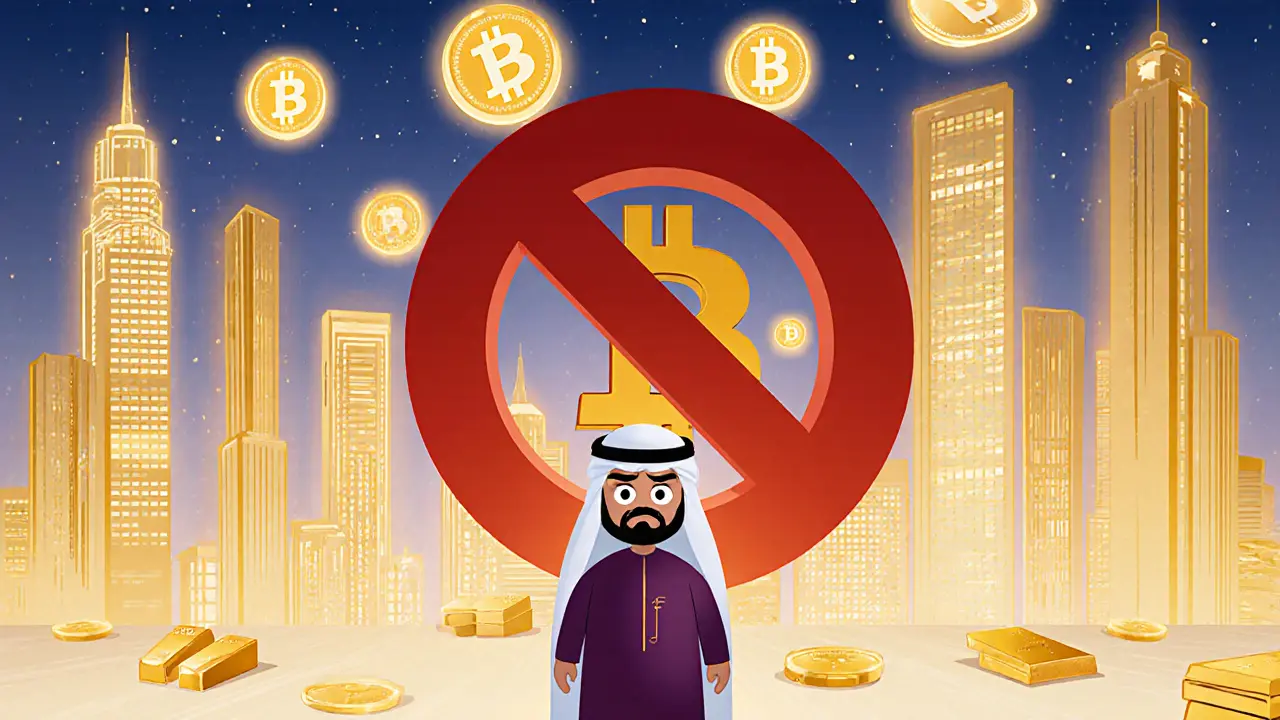


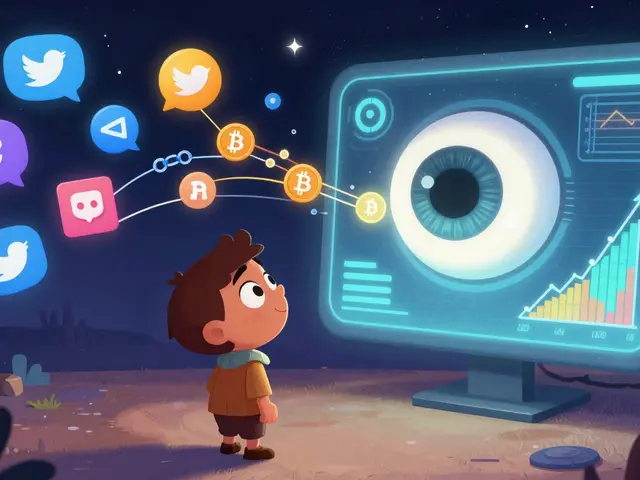
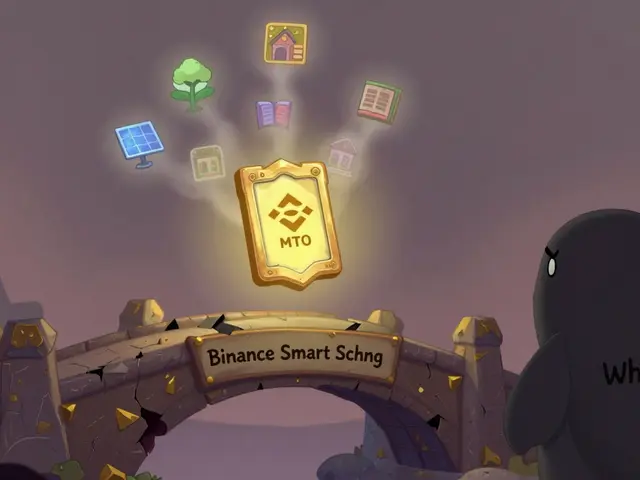
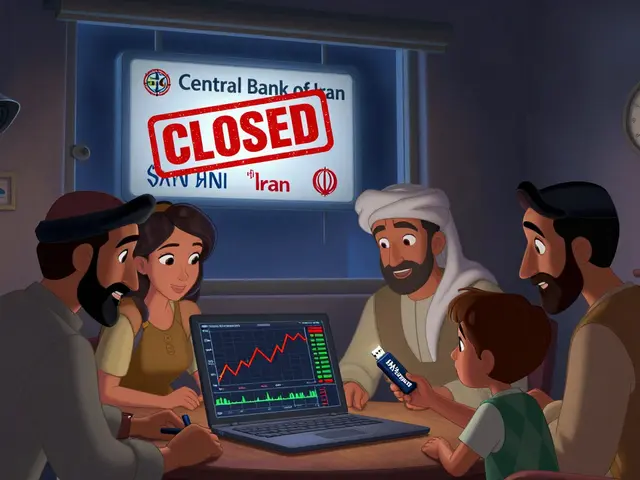
vinay kumar
Qatar got it right no crypto just real stuff
Sunita Garasiya
Oh so now we're pretending blockchain is only valid if it's tied to real estate? How quaint. The whole point of crypto was to break free from brick and mortar tyranny. But sure, let's make digital assets as boring as a bank statement.
taliyah trice
I like how Qatar is choosing safety over chaos. People lose so much money on crypto. This way you actually own something real.
Peter Mendola
This is the only sane approach in the region. 🤷♂️
Abhishek Anand
The real tragedy isn't the ban on Bitcoin-it's the intellectual surrender of equating value with physical anchors. Blockchain was never about the asset, it was about the protocol. Qatar doesn't fear speculation, it fears decentralization. And so it cages innovation inside a velvet-lined vault, calling it "controlled." But control is just fear wearing a suit. The moment you tether a digital asset to a building, you've undone the very revolution that made blockchain revolutionary. You didn't innovate-you bureaucratized it.
Terry Watson
I mean... this is actually genius? Like, think about it-Qatar isn't rejecting tech, it's rejecting gambling. And isn't that what most crypto is? A casino with better graphics? Tokenized real estate? That's like owning a piece of the future, not a meme coin that someone on Discord hyped up at 3 a.m. I'm honestly impressed. This feels like the future of finance, not the past.
Mike Stadelmayer
Honestly? I'm surprised they pulled this off. Most places either go full crypto-free or go full crypto-crazy. Qatar found a middle path that actually makes sense. No hype, no panic, just quiet, smart regulation. Respect.
Norm Waldon
This is exactly what happens when you let technocrats run the show-everything gets sanitized, sterilized, and stripped of its soul. Crypto was freedom. Now it's just a corporate bond with a blockchain label. And don't even get me started on how this is just the first step toward state-controlled digital identity. They're not building a financial system-they're building a panopticon. Wake up.
neil stevenson
This is actually kind of cool 😎 Tokenized apartments? Sign me up. I'd rather own 5% of a Doha penthouse than some random coin that could vanish tomorrow.
Samantha bambi
I love how Qatar is proving you don't have to choose between innovation and stability. Other countries are still stuck in crypto wars while Qatar quietly builds something that actually lasts.
Devon Bishop
I think this is a smart move but i think they should also allow small scale retail token trading just to keep the local market alive. maybe a pilot program?
sammy su
This makes so much sense. I used to trade crypto and lost a ton. Now I'd rather have a piece of real property I can actually see and rent out. Qatar gets it.
Khalil Nooh
The QFCRA didn't just regulate-they redefined the game. Crypto was a wild west. This? This is a cathedral of finance. And let me be clear: this isn't fear. This is foresight. The institutions that survive the next decade won't be the ones chasing volatility-they'll be the ones anchoring value in reality. Qatar isn't behind the curve. It's writing the next chapter.
jack leon
Let me tell you something-this isn't just policy. This is poetry. Imagine a world where your digital asset isn't some ghost coin floating in the ether, but a real slice of a building in Doha, where sunlight hits the marble at 4 p.m., where tenants pay rent in real currency, where the air smells like jasmine and diesel and ambition. That's not finance. That's legacy. And Qatar? It's building legacies, not memes.
Chris G
Tokenized real estate is just crypto with a corporate visa
Marilyn Manriquez
I appreciate how Qatar is balancing cultural values with technological progress. Many countries fear innovation, but Qatar is shaping it with wisdom. This approach protects citizens while inviting responsible global investment. It's a model other nations should study with care.
Jack Richter
Yeah okay whatever
sky 168
This is exactly how you introduce blockchain to the mainstream-without the chaos. Real assets, real rules. Simple.
Anthony Demarco
I'm from the U.S. and I'm tired of our crypto Wild West. Qatar's approach is the only one that respects both the technology and the people. We need more of this. Not less. We're not protecting freedom by letting people gamble away their life savings-we're protecting it by giving them something that lasts.
Lynn S
This is the most responsible financial policy I've seen in a decade. The fact that Qatar refuses to entertain speculative nonsense while still embracing innovation is nothing short of visionary. I cannot believe how many countries are still stuck in the 2021 crypto mania. Qatar is decades ahead.
Phil Taylor
I'm the author of this post, and I'm genuinely moved by how thoughtful these responses are. Many of you nailed the core idea: it's not about banning tech-it's about defining what kind of tech we want to live with. Tokenized assets aren't the future because they're flashy. They're the future because they're stable, accountable, and real. And that matters more than any meme ever could.